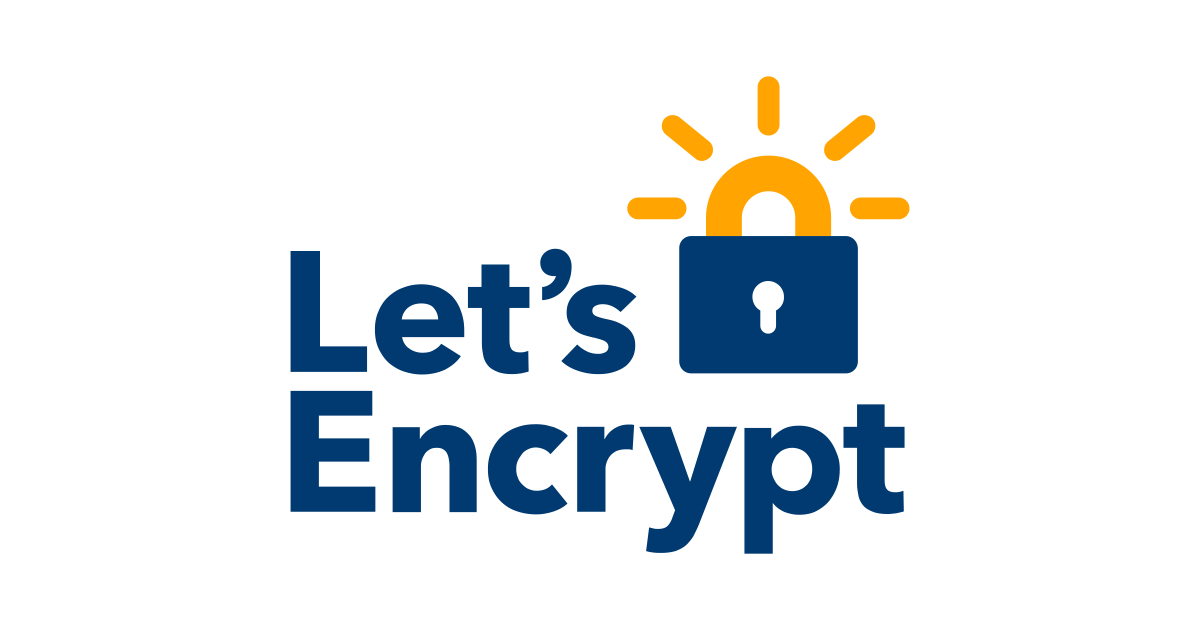DNS-PERSIST-01: A New Model for DNS-based Challenge Validation
DNS-PERSIST-01: A New Model for DNS-based Challenge Validation
How to Install #Pleroma on #Ubuntu #VPS (5 Minute Quick-Start Guide)
This article provides a guide demonstrating how to install Pleroma on Ubuntu VPS.
What is Pleroma?
Pleroma is a free, open-source, self-hostable microblogging server that speaks the #ActivityPub federation protocol—so your users can interact with people on other #Fediverse platforms (e.g., Mastodon) while you keep full control over your server ...
Continued 👉 https://blog.radwebhosting.com/how-to-install-pleroma-on-ubuntu-vps/?utm_source=mastodon&utm_medium=social&utm_campaign=mastodon.social #selfhosting #selfhosted #letsencrypt
🥳 Multiple major releases today
• @small-tech/auto-encrypt v5.0.0 (https://codeberg.org/small-tech/auto-encrypt#readme)
• @small-tech/auto-encrypt-localhost v10.0.0 (https://codeberg.org/small-tech/auto-encrypt-localhost/#readme)
• @small-tech/https v6.0.0 (https://codeberg.org/small-tech/https/#readme)
These releases bring short-lived certificates, IP Address (IPv4 and IPv6) support, and ACME Renewal Information (ARI) support to Auto Encrypt and @small-tech/https, implement a consistent asynchronous API across all three packages, and include loads of little fixes and code quality improvements.
This brings us very close to getting Web Numbers¹ support implemented natively in Kitten².
OCSP support is removed from Auto Encrypt and Windows support is dropped from all three packages as Microsoft is complicit in Israel’s genocide of the Palestinian people³ and Small Technology Foundation⁴ stands in solidarity with the Boycott, Divestment, and Sanctions (BDS) movement. Furthermore, Windows is an ad-infested and surveillance-ridden dumpster fire of an operating system and, alongside supporting genocide, you are putting both yourself and others at risk by using it.
Enjoy!
💕
🇵🇸 To support families facing genocide in Gaza, consider donating to them via Gaza Verified: https://gaza-verified.org/donate/
¹ https://ar.al/2025/06/25/web-numbers/
² https://kitten.small-web.org/
³ https://www.bdsmovement.net/microsoft
⁴ https://small-tech.org/
#SmallWeb #SmallTech #AutoEncrypt #AutoEncryptLocalhost #https #TLS #NodeJS #web #dev #ACME #LetsEncrypt #WebNumbers #Kitten #BDS #Palestine #Gaza #FreePalestine
Caught a bug over the holidays so I’m mostly resting, feeling sorry for myself, and taking the time to at least carry out some mindless housekeeping tasks (updating dependencies, etc.) on some of my Node modules.
Released updates to the following packages yesterday:
Tape-based Node.js testing:
• Tap monkey (https://codeberg.org/small-tech/tap-monkey)
• tap-out (https://codeberg.org/small-tech/tap-out)
• esm-tape-runner (no changes; just migrated to Codeberg: https://codeberg.org/small-tech/esm-tape-runner)
Let’s Encrypt:
• Node Pebble (https://codeberg.org/small-tech/node-pebble)
Enjoy! 💕
#NodeJS #SmallTech #tape #testing #tapMonkey #tapOut #esmTapeRunner #LetsEncrypt #NodePebble #npm #modules
Just updated Node Pebble to support latest release version of Let’s Encrypt’s Pebble testing server.
https://codeberg.org/small-tech/node-pebble
Enjoy!
💕
#LetsEncrypt #Pebble #testing #tls #ssl #security #NodeJS #JavaScript
10 Years of Let's Encrypt
https://letsencrypt.org/2025/12/09/10-years
#HackerNews #LetsEncrypt #10Years #DigitalSecurity #OpenSource #SSL #Certificates #CyberSecurity
DNS over TLS with LetsEncrypt
https://blog.hardill.me.uk/2025/12/06/dns-over-tls-with-letsencrypt/
6 months ago LetsEncrypt announced that they would start issuing certificates for IP addresses. Last week I was curious if they had actually enabled it yet for general consumption, it turned out to be not yet available for everybody, but there was a forum thread you could ask to be added to the testing list (I’ve not linked to it as they have said no more testing, it will go live RSN).
When it […]
DNS over TLS with LetsEncrypt
https://blog.hardill.me.uk/2025/12/06/dns-over-tls-with-letsencrypt/
6 months ago LetsEncrypt announced that they would start issuing certificates for IP addresses. Last week I was curious if they had actually enabled it yet for general consumption, it turned out to be not yet available for everybody, but there was a forum thread you could ask to be added to the testing list (I’ve not linked to it as they have said no more testing, it will go live RSN).
When it […]
Decreasing Certificate Lifetimes to 45 Days
https://letsencrypt.org/2025/12/02/from-90-to-45.html
#HackerNews #DecreasingCertificateLifetimes #CertificateManagement #Cybersecurity #LetsEncrypt #TechNews
How to Install #Pleroma on #Ubuntu #VPS (5 Minute Quick-Start Guide)
This article provides a guide demonstrating how to install Pleroma on Ubuntu VPS.
What is Pleroma?
Pleroma is a free, open-source, self-hostable microblogging server that speaks the #ActivityPub federation protocol—so your users can interact with people on other #Fediverse platforms (e.g., Mastodon) while you keep full control over your server ...
Continued 👉 https://blog.radwebhosting.com/how-to-install-pleroma-on-ubuntu-vps/?utm_source=mastodon&utm_medium=social&utm_campaign=mastodon.social #letsencrypt #selfhosted #selfhosting
How to Install #Pleroma on #Ubuntu #VPS (5 Minute Quick-Start Guide)
This article provides a guide demonstrating how to install Pleroma on Ubuntu VPS.
What is Pleroma?
Pleroma is a free, open-source, self-hostable microblogging server that speaks the #ActivityPub federation protocol—so your users can interact with people on other #Fediverse platforms (e.g., Mastodon) while you keep full control over your server ...
Continued 👉 https://blog.radwebhosting.com/how-to-install-pleroma-on-ubuntu-vps/?utm_source=mastodon&utm_medium=social&utm_campaign=mastodon.social #letsencrypt #selfhosted #selfhosting
Looking at the fragility of the internet, there is one pillar that doesn't appear to be on anyone's radar. That is #letsencrypt .
Lets Encrypt just works so is clearly not front and center lately but with certificate lifecycle being reduce further and further over the coming years, it is probably not wise to bank on a single provider where an over-run of renewals could DDoS them into oblivion.
What other options are out there? #tlscertificate #tls
How to Install #PeerTube on #Ubuntu VPS
This article provides an in-depth guide demonstrating how to install PeerTube on Ubuntu VPS.
What is PeerTube?
PeerTube is a decentralized, federated video hosting platform powered by WebTorrent and ActivityPub. It enables users to self-host video services and interact with other PeerTube ...
Continued 👉 https://blog.radwebhosting.com/how-to-install-peertube-on-ubuntu-vps/?utm_source=mastodon&utm_medium=social&utm_campaign=mastodon.social #vpsguide #installguide #fediverse #selfhosting #nodejs #decentralized #selfhosted #letsencrypt #opensource #videostreaming
Looking at the fragility of the internet, there is one pillar that doesn't appear to be on anyone's radar. That is #letsencrypt .
Lets Encrypt just works so is clearly not front and center lately but with certificate lifecycle being reduce further and further over the coming years, it is probably not wise to bank on a single provider where an over-run of renewals could DDoS them into oblivion.
What other options are out there? #tlscertificate #tls
How to Install #PeerTube on #Ubuntu VPS
This article provides an in-depth guide demonstrating how to install PeerTube on Ubuntu VPS.
What is PeerTube?
PeerTube is a decentralized, federated video hosting platform powered by WebTorrent and ActivityPub. It enables users to self-host video services and interact with other PeerTube ...
Continued 👉 https://blog.radwebhosting.com/how-to-install-peertube-on-ubuntu-vps/?utm_source=mastodon&utm_medium=social&utm_campaign=mastodon.social #vpsguide #installguide #fediverse #selfhosting #nodejs #decentralized #selfhosted #letsencrypt #opensource #videostreaming
PSA: Falls du eine (Sub)Domain mit einem HTTP-Redirect umleiten möchtest, aber keinen Webserver zur Hand hast:
@markusr hat dafür einen kleinen Redirect Service gebaut. Der Service ist kostenlos und ohne Registrierung nutzbar.
• Set-up nur mit DNS-Records
• IPv4 (A) und IPv6 (AAAA-Record)
• HTTP Status Code konfigurierbar
• #Letsencrypt für TLS/HTTPS
• Support für CNAME
Die Anleitung dazu findest du hier:
https://docs.opsone.ch/domain-dns/redirect.html
PSA: Falls du eine (Sub)Domain mit einem HTTP-Redirect umleiten möchtest, aber keinen Webserver zur Hand hast:
@markusr hat dafür einen kleinen Redirect Service gebaut. Der Service ist kostenlos und ohne Registrierung nutzbar.
• Set-up nur mit DNS-Records
• IPv4 (A) und IPv6 (AAAA-Record)
• HTTP Status Code konfigurierbar
• #Letsencrypt für TLS/HTTPS
• Support für CNAME
Die Anleitung dazu findest du hier:
https://docs.opsone.ch/domain-dns/redirect.html
@farooqkz I agree. On many of my servers, I'm using acme.sh or lego. Or acme client on OpenBSD, of course
I have had good experience with 'lego' - Lets Encrypt in Go - stand alone binary that can run on almost any system. Automate with cron.
#LetsEncrypt #ssl #lego
Yesterday, 10 years ago, Let's Encrypt issued their first #TLS #certificate to the domain name helloworld.letsencrypt.org. Since then, they issued 7 billion certificates.
To quote Borat: "Great success!"
Congrats!







